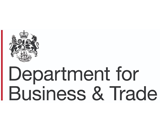Online Job Hunting Tips: How to Spot a Job Scam
Worrying new research suggests that many jobseekers are having trouble spotting the signs of a job scam.
The research conducted by CV-Library in partnership with SAFERJobs comes from a survey of 2,000 UK workers and aimed to discover what they knew about online job scams. The results reveal a worrying lack of awareness and understanding among jobseekers:
- The majority (72.1%) of job hunters admit they do not know and would not recognise the signs of a job scam
- A worrying 71.3% of workers would assume that any job posted online is a legitimate posting from a real business
- Even if they did feel suspicious, 98% of candidates would still continue with an application, despite feeling that a job may not be legitimate
Furthermore, the research suggests that a lack of awareness is to blame for job hunters putting themselves at risk, as respondents were unable to correctly identify the signs of a scam:
- Over half of workers (58.3%) do not know what a DBS (Disclosure and Barring Service) check is, wrongly identifying CRB as an appropriate security check, despite the switch being made in 2012
- When asked to pay for their own security checks, 58.5% could not estimate how much it should cost them
- 54.8% would not check the authenticity of a job post’s web address before applying
- Only 6.8% of job hunters felt that being offered a job without an interview would indicate a hoax
So how do you spot a job scam?
CV-Library, and SAFERJobs have highlighted the following as potential signs of a job scam :
- Use of personal email addresses i.e. joebloggs@hotmail.com rather than company or organisational ones
- Regular spelling and grammatical mistakes, often indicate poor translation
- Unrealistic salaries (if it sounds too good to be true, it probably is)
- Stating ‘No Experience Necessary’ as a job title
- A job offer without an interview
- Extortionate DBS costs (anything over £75 should be queried), or requesting a candidate to pay for a CRB check (Criminal Records Bureau), which no longer exists
- Premium rate phone numbers for interviews
- Illegitimate company names and web addresses
CV-Library is a leading UK independent job site and SAFERJobs is a non-profit making organisation created by the Metropolitan Police to raise awareness of jobs scams and job related fraud. SAFERJobs also recently teamed up with the National Trading Standards eCrime Team to combat online job scams.
Lee Biggins, founder and managing director of CV-Library commented:
“Today’s job market is flourishing and there’s an abundance of opportunities available to workers looking for their next move. Unfortunately, this can make it even easier for scammers to hide amongst genuine postings and take advantage of unsuspecting candidates. At CV-Library we use automated and manual tools to ensure every job positing is legitimate, but there are other competing platforms that fraudsters use to lure their victims and it’s critical that job hunters are educated on the risk of online job scams.”
Keith Rosser, chair of SAFERJobs, said:
“Job hunters have to be vigilant. There are many job sites out there that don’t work to protect candidates from scams leaving them open to falling victim. Our advice is to use a site that is partnered with SAFERJobs – this partnership indicates that proactive measures are being taken to fight scammers.”
According to Biggins and Rosser, a scam is also likely to contain a series of red flags, rather than a sole element. “For example,” Biggins explains, “if a job is advertising an unrealistic salary, stating that no experience is necessary and providing a personal email address on a posting full of spelling mistakes, then a candidate should be cautious. That’s not to say there aren’t jobs out there that might include the odd typo, or not require specific experience, but it’s better to check with the site on which the job is advertised.”
Rosser confirms: “Any reputable site that is partnered with us will be happy to look into a posting on a candidate’s behalf in order to ensure safety and provide peace of mind.”
Rosser concludes: “Awareness of online job scams and the tricks criminals use to execute a con is essential to combating this crime. Our organisation is dedicated to educating the public on the very real risk of online job scams – it’s critical that the general public know which signs to look out for and are diligent in their job search. Job hunters should always used trusted sites, and keep the signs of a scam in mind when looking for work online.”
Mike Andrews the National eCrime Co-ordinator said:
“Scammers will ruthlessly exploit anyone who can’t tell the difference between a fake and genuine job listing. People looking for jobs are more vulnerable to these kinds of scams. I would strongly urge jobseekers to carefully check the credentials of any company before handing over personal information as part of the wider process of applying for an online job. Also you can get the latest information about, and tips on, job scams by following the the social media feeds of organisations such as the National Trading Standards eCrime Team, SAFERJobs, CV-Library , Get Safe Online and ActionFraud.”
For the latest on job scams follow:
- The National Trading Standards eCrime Team on Twitter and Facebook
- SAFERJobs on Twitter and Facebook
- CV-Library on Twitter and Facebook
- Get Safe Online on Twitter and Facebook
- ActionFraud on Twitter and Facebook






